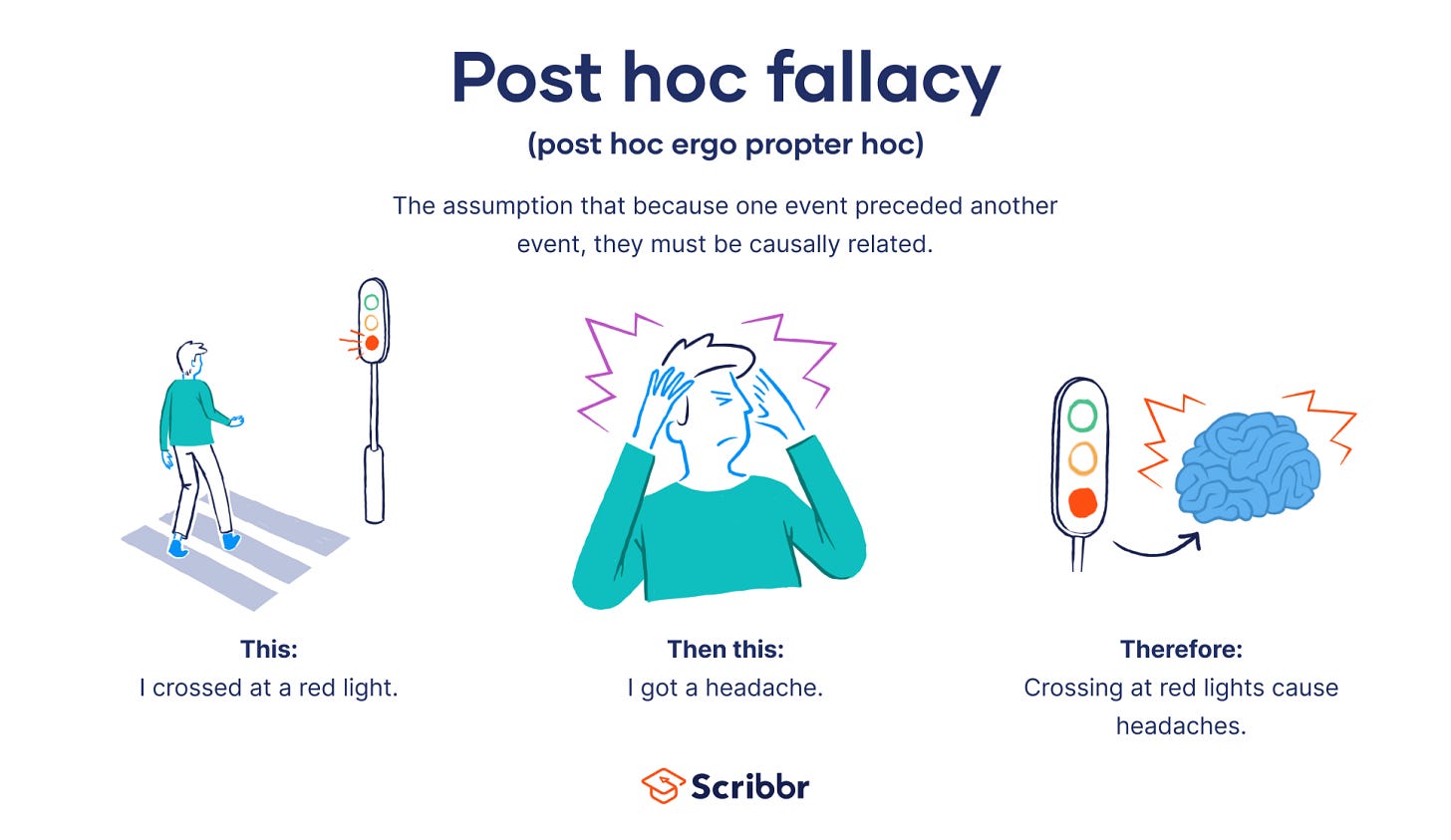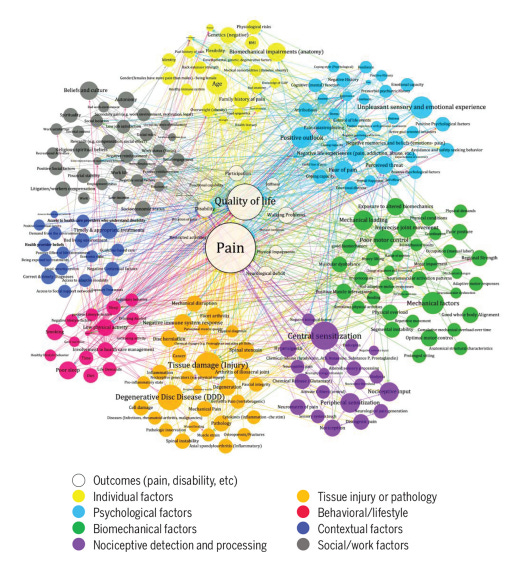Hey team,
I’m back after a much needed holiday.
Today I wanted to tackle a phrase that I’m sure some of you have seen getting used on social media.
The Post Hoc Fallacy or Post Hoc Ergo Propter Hoc.
The Post Hoc Fallacy is often thrown around on social media, but until recently I had no clue what it meant.
In essence, the Post Hoc Fallacy is as follows:
Since event Y occured after event X, event Y must have been caused by event X.
It assumes that because event Y occured within a close period of time to event X, that these 2 events are linked.

So why am I talking about logical fallacies?
Because in the world of chronic pain, this type of fallacy is rampant.
A classic example is:
I did deadlifts at the gym, then the next day my back hurt, therefore deadlifts cause back pain.
Which I’m sure is something that we have all heard or said before. I certainly believed that statement until maybe 12 months ago.
But it’s not true.
This way of thinking forgets about many other factors that influence our sensitivity for pain.
Here are all the interrelated factors that can influence how we perceive pain:
To blame our chronic pain on one event is the wrong way to think.
To continue with the deadlifting example.
During the gym session you may have loaded the bar too much.
Post session you might have gone to work and been inactive for the rest of the day.
Other potential stressors such as heavy workload, job instability, financial issues, relationship issues, poor sleep, social isolation, the list goes on.
The other side of this, is the claims that one exercise will solve your back pain.
The classic clickbait thumbnail “Do these 3 exercises to solve your back pain” or the “10 years of back pain solved with this simple exercise”.
It’s the same logical fallacy, “I did this exercise, then my back stopped hurting, therefore this exercise fixed my back.”
It’s not true, there are a wide varity of factors that could have stopped your back from hurting.
Rather than looking to blame one factor, we are better off understanding that there are a multitude of factors that can positively or negatively affect our pain sensitivity and how we experience pain.
And understanding that some days will be worse than others.
Chat soon,
Jono
Jono is an exercise physiologist committed to helping people in pain.


